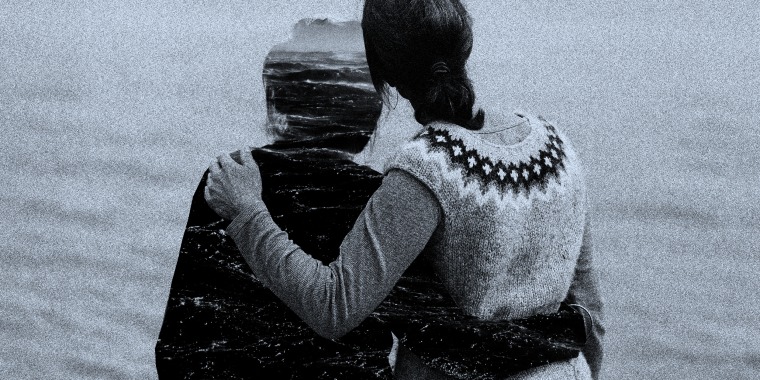“Don’t let them forget about me.” These words were spoken as I held an iPad to Mary’s face while she told her husband goodbye from a Covid-19 ward after a traumatic hospitalization that left her in multiple organ failure. (Names have been changed for privacy.)
At least 40,000 children have lost a parent to Covid-19 this year.
These words still haunt me. Earlier, Mary had spoken to her young children, 5 and 7 years old. But her last request before she died was to her husband, and it was a simple one: Don’t let her young children forget their mother.
At least 40,000 children have lost a parent to Covid-19 this year — likely an underestimate, and a tally that does not account for adults who have lost parents to Covid-19. As families around the country take off their masks outdoors and the country celebrates in restaurants and houses of worship, take time to acknowledge that, both as individuals and as a collective, this Mother’s Day might just be the hardest one of all for a lot of us.
The miracle of the Covid-19 vaccines has allowed Americans to start to emerge from their homes and inch a bit closer to normal. But anyone who has experienced a loss of a mother or mother figure in their life, especially recently, would likely give anything to have had access to a vaccine or treatment that could have prevented death.
Our conventional approach to grief comes from understanding the stages and emotions related to the process: denial, anger, depression, etc. But grieving without funerals, hugging or crying in person with our communities are things we haven’t encountered at this scale before the pandemic. Many of us have become used to life over Zoom, but grieving is another story. Technology can be a poor substitute and is likely to foster isolation, and that isolation is often replaced by despair.
For the many who have lost mothers in the past year, these steps may help you navigate through this Mother’s Day. The first step in coping with loss, especially when it feels like everyone else is celebrating, is to acknowledge that you do not put grief behind you or get past it; you accept that you will likely carry your grief and loss at all times. It is why, years from now, a smell or a sound will remind you of your grief and the trauma of the loss may repeat itself.
A tangible expression of loss can be both tragic and healing at the same time.
The next step is to recognize that grief, especially the loss of a mother on the occasion of Mother's Day, can take many forms. When possible, it can help to bring awareness to its various disguises.
Sharon* is a 35-year-old woman whose mother died of Covid-19 early in the pandemic. She thought she had dealt with the worst of her bereavement and had resumed normal life but started to experience problems with hair loss and menstrual irregularities. A thorough medical workup revealed no specific cause.
Months after her mother’s virtual funeral, we slowly realized that her grief and loss were manifesting in changes to her body. Her grief had consumed her not in the form of tears but in changes to her hormonal axis. It had found its way to the surface and was begging for attention.
Sharon was diagnosed with a type of complicated grief — one that is distinct and different from other types of grief or mood disorders. Mental health support combined with regular primary care visits allowed her to transform the grief from her physical reactions to a more typical pattern of mourning.
Another action that can help the entire country deal with our losses this Mother’s Day is to memorialize and acknowledge the loss as a group. Many of us, myself included, were visibly moved by the words of President Joe Biden and the memorial of lights erected in front of the Washington Monument to the 400,000 lives lost to Covid-19.
The memorial reinforced the need for our society to grieve collectively and the catharsis it can bring. A tangible expression of loss can be both tragic and healing at the same time.
For many families, Mother’s Day will be an incredible reminder of a grief that is raw and especially profound as the news and social media platforms are dominated with scenes of celebration, recreation and hope.
If you are reading this and know of someone who has gone through a loss this past year, try to be vigilant and aware that grief, like the love that fostered it in the first place, is incredibly individual and unique. Refrain from saying you are sorry or from feeling awkward. Instead, try to meet them where they are in their journey of grieving. Our nation is still not through with this pandemic and, frankly, we may never be, but our loved ones deserve a place in everyone’s consciousness.

